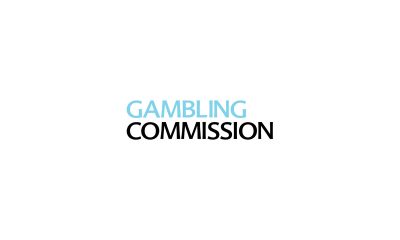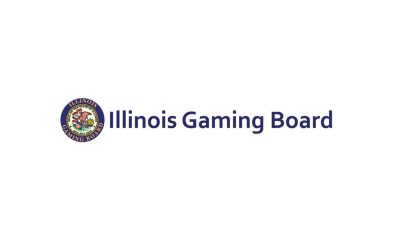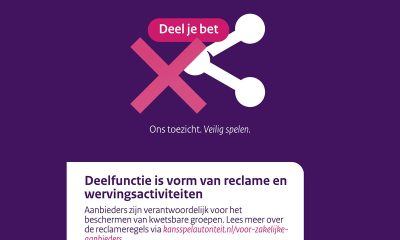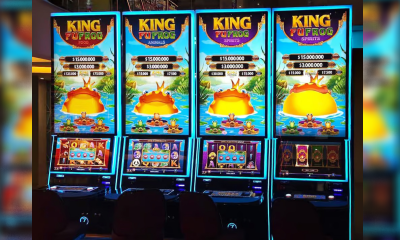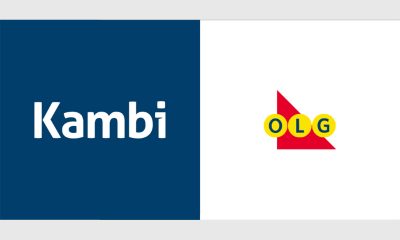AML
Payments Under Scrutiny: Polish Example

Reading Time: 4 minutes
Online gambling continues to thrive in Poland, despite the country’s strict regulatory framework. Virtual casinos and betting platforms still attract players with the promise of easy access and quick winnings. Yet, their operations would not be possible without the involvement of payment institutions that process transactions for entities operating outside the boundaries of the law. Behind the scenes lie not only questions about compliance with Poland’s Gambling Act, but also serious concerns about money laundering and the potential financing of criminal activity.
PSPs Legal Responsibility
The key question remains the legality of actions taken by payment institutions that handle transactions linked to illegal online gambling. Do they, even unintentionally, help such operations thrive? Under Polish law, payment service providers are required to monitor and limit high-risk transactions. In practice, this means that every deposit or withdrawal connected to unlicensed gambling activity should be treated as a red flag. Special attention is also given to transactions made through popular mobile payment systems such as BLIK. While BLIK itself is not a payment institution under Polish law, the banks and financial operators using it are and it is they who bear responsibility for preventing the flow of funds that may support illegal gambling activities.
Clear Legal Framework, Limited Excuses
Polish law leaves little room for speculation here. The register of domains used to offer illegal gambling, the ban on processing payments for unlicensed operators, and the penalties outlined in the Fiscal Penal Code and Criminal Code set clear boundaries of responsibility.
The Anti-Money Laundering Act (AML) and the EU Regulation 2023/1113 require payment institutions to actively monitor transactions, block suspicious transfers, and cut off risky relationships. Guidance issued by the Polish Financial Supervision Authority (KNF/UKNF) and the National Risk Assessment, along with its sectoral annex, describes typical abuse schemes and makes it clear that payments directed toward online gambling should be treated as a major warning signal. In practice, this means that financial channels supporting illegal gambling must be identified and shut down before the funds return to players as so-called “winnings.”
And this principle is now being actively enforced. Recently, the Financial Supervision Authority (UKNF) went a step further, issuing a sector-wide warning urging payment service providers to block financial flows to unlicensed operators. In response, Polish payment providers have begun withdrawing support for illegal gambling sites and removing payment options such as BLIK from unlicensed platforms.
The Hardest to Detect: The Intermediary Role
The flow of funds into illegal online gambling can take many forms, depending on the relationships between the parties involved in the transaction. The most difficult to detect, however, is the scenario in which a payment institution acts only as an intermediary within a larger payment chain transferring money between other financial service providers without directly serving the payer or the recipient. Even in such cases, the institution is not exempt from its obligation to continuously monitor and analyse all transactions.
Depending on the type of payment, it should apply different verification methods, all aimed at determining whether executing a transfer on behalf of another provider could, in practice, end up funding entities that organize illegal online gambling. The institution must obtain information from the ordering provider about the recipient, determine whether it is engaged in gambling related activity, and verify its legal status. If red flags arise during the analysis such as missing data in the payment chain, a domain listed in the official register, or the absence of the website from the list of legal operators the transaction should be paused or rejected and properly escalated. This includes raising the risk level, notifying the relevant authorities, or even terminating cooperation. When dealing with correspondent relationships involving other institutions, including those based within the European Union, heightened caution is essential.
Grey Market Fuelled by Inaction
Illegal online gambling would not exist without the support of the payment system. Although the law clearly defines the obligations of financial institutions, in practice it is often these very institutions that knowingly or not enable the flow of money into illegal online gambling. This is why effective identification and blocking of such transactions is crucial, especially within complex payment chains where tracing the connections can be most difficult. Every transfer made in support of illegal online gambling represents not only a legal risk but also real support for the shadow economy that thrives on the lack of vigilance within the financial sector.
This article was supplied by:
Marek is a founder and a head of the legal team at RM Legal Law Firm and Gaming In Poland, jointly providing multidisciplinary and multijurisdictional support for leading international gambling operators in the Polish, European Union, and African markets. His gambling practice includes regulatory support at the pre and post-licensing stage, IT, and taxation services, as well as the unique service of performing a function of a gambling representative. RM Legal is the only law firm in Poland representing offshore companies operating legally in the Polish gambling market. Apart from gambling Marek specializes in corporate commercial law and international investment projects.
The post Payments Under Scrutiny: Polish Example appeared first on European Gaming Industry News.
AML
RG24seven Opens Training to Spanish & Portuguese speakers with FREE Responsible Gambling and Anti-Money Laundering Courses
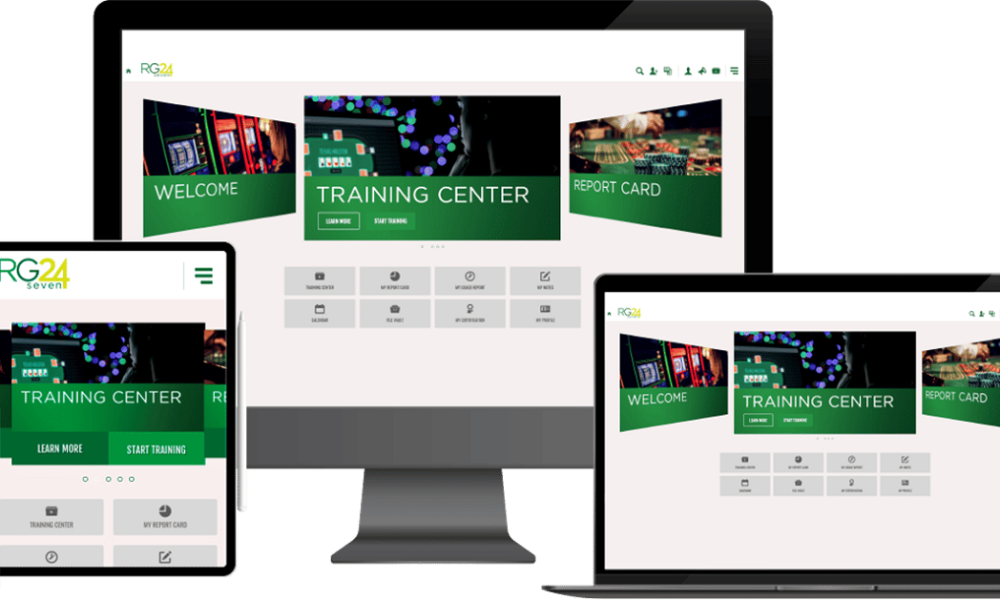
RG24seven Virtual Training, the responsible, effective, and free video-based virtual training system for gaming employees, is pleased to announce the addition of Spanish and Portuguese subtitles to its U.S.-based Responsible Gambling and Anti Money-Laundering courses. The courses are offered as part of the RG24seven free virtual training program for Tribal and commercial gaming employees.
The decision to incorporate subtitles into the Responsible Gambling course aligns with RG24seven’s dedication to ensuring that vital training resources are accessible to all, including individuals who prefer to consume content in different languages.
Wendy Anderson, Chief Executive Officer of RG24seven Virtual Training stated, “With the onset of legal gambling in Brazil through the country’s newly established national regulatory framework for betting systems, live gaming studios, and online games, offering our compliance-grade course in Portuguese is more important than ever.”
Anderson added, “Accessibility should be a cornerstone of any educational initiative, especially when it comes to promoting responsible gambling practices. RG24seven is the industry’s most accessible and valuable training for gaming company employees.”
RG24seven’s virtual training program is available to all gambling establishments in the U.S., U.K., Europe, Central and South America.
AGA
AGA Publishes Updated Anti-Money Laundering Best Practices

Updates Reflect Industry Leadership, New Laws to Protect Financial System
The American Gaming Association (AGA) released the third edition of its Best Practices for Anti-Money Laundering (AML) Compliance resource. The updated document—reviewed and revised by the country’s top compliance professionals—builds on the gaming industry’s AML leadership and reflect new laws, technologies and indicators of criminal activity.
“As the methods and sophistication of financial crimes evolve, the gaming industry continues to spearhead efforts to combat money laundering,” said Alex Costello, AGA’s vice president, government relations. “An invaluable resource for our industry, this guide demonstrates gaming’s commitment to protect the U.S. financial system from money laundering and other forms of illicit finance.”
Since the last update to Best Practices in 2019:
- Congress made significant changes to the Bank Secrecy Act through the Anti-Money Laundering Act of 2020.
- FinCEN granted the gaming industry federal exceptive relief for certain types of ID verification.
- Sixteen additional states legalized sports betting and iGaming.
- Nearly a dozen gaming jurisdictions approved the use of digital payments and forms of cryptocurrency.
- New types of cybercrimes and fraudulent activity have surfaced.
To address these changes, Best Practices provides updated guidance, expanded red flag indicators, current compliance obligations, revised definitions and other essential information for gaming companies to maintain their strong AML regimes.
The casino gaming industry is recognized as a leader in AML compliance. In 2014, gaming became the first industry to collectively establish this comprehensive set of best practices for AML compliance. In 2021, the industry filed nearly 55,000 suspicious activity reports to aid law enforcement in fighting money laundering activity. In addition, the AGA represents gaming on the Bank Secrecy Act Advisory Group (BSAAG), a group organized by FinCEN to collaborate with stakeholders in the financial sector.
Powered by WPeMatico
-

 Latest News6 days ago
Latest News6 days agoBMM TESTLABS GRANTED NEW LICENSE IN BRAZILIAN STATE OF MINAS GERAIS, EXPANDING ITS PRODUCT TESTING AND CERTIFICATION FOOTPRINT IN BRAZIL
-

 BMM Innovation Group6 days ago
BMM Innovation Group6 days agoBMM Testlabs Secures Minas Gerais License, Expanding iGaming and Sports Betting Certification in Brazil
-

 Colombia7 days ago
Colombia7 days agoZITRO INSTALLS OVER 70 MACHINES ACROSS GRUPO ALADDIN CASINOS IN COLOMBIA
-

 Conferences6 days ago
Conferences6 days agoChampions Club Bound for Dubai
-

 Brasil on Track4 days ago
Brasil on Track4 days agoODDSGATE LAUNCHES “BRASIL ON TRACK”, A STRATEGIC PLATFORM FOR NAVIGATING BRAZIL’S REGULATED IGAMING MARKET
-

 Canada7 days ago
Canada7 days agoKambi Group Becomes the Official Sportsbook Partner of Ontario Lottery and Gaming Corporation
-

 Latest News6 days ago
Latest News6 days agoMillion Games Unveils Looting Raccoons: A Charming Pirate Slot Packed with Features
-

 Central Europe7 days ago
Central Europe7 days agoPoland to Classify Gambling Streaming as Serious Crime


 Marek Plota
Marek Plota
